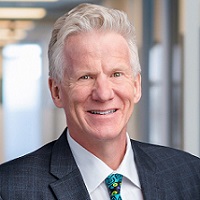 By Nick van Terheyden aka Dr Nick, Principal, ECG Management Consulting
By Nick van Terheyden aka Dr Nick, Principal, ECG Management Consulting
Twitter: @drnic1
Host of Healthcare Upside Down – #HCupsidedown
From the days of the village doctor in ancient Mesopotamia to the now-quaint image of doctors making house calls, physicians were once familiar figures in their communities. Healthcare institutions are still central to our communities, of course. But what about our relationships with our care providers? Is a 15-minute meeting with a physician adequate for our whole-care needs?
“Imagine if you were able to connect with a physician who understood the human that you are, how you like to be approached in a conversation, the level of detail you need to make a decision,” suggests Ari Levy of SHIFT. “As human beings, we need to connect.”
Episode NOW on Demand
Few would disagree. But it’s hard to imagine that type of patient-provider relationship in an era when it can take days or weeks to get even a brief appointment with a primary care physician.
Concierge medicine is a more personalized approach to care the enables physicians to spend more time with their patients, giving them an opportunity to establish the kind of relationship that Ari describes. But the model is not an option for many patients—only those who can afford the membership fee.
Can we move our healthcare system to a more customized, individual-centered approach—and do so at scale? Is it possible to offer personalized care not just to the limited population who have the extra resources but to everyone in our society, especially to the underserved and those disenfranchised through the inequitable distribution of our healthcare and wellness system?
Ari Levy is the founder and chief executive officer of SHIFT, a group rethinking the way we deliver healthcare. They aim to bring a team-based approach that integrates medicine, diet, health, and wellness into a sustainable, action-oriented model of care. On this episode he describes a new take on concierge medicine. Here are a few excerpts.
Transactional Care
“What we struggle with in medicine is that we have gotten so good at reactive and acute care—what I’ll call transactions. We can figure out problems, oftentimes, before the patient’s even the room. As a technician, not as a caregiver, I know exactly what needs to be done, how it needs to be done, and I can get that done in a set period of time. There are guidelines and algorithms that make it very rote. What those transactions lose is the soul.”
Greater Connection between Patients and Providers
“It’s very hard in a five- to seven-minute exchange to transform somebody’s life, to engage with them, to connect with them. I see people craving connection—to be seen, to be heard, to be understood, to be partnered with; not told what to do. How do you find out what a patient needs? Not in terms of specialists, but how should they be approached? Or what type of learning modalities are best for them? How do they receive information, so that they understand what you’re saying? We are trained so that I identify the problems, tell you what you have, and tell you what you need to do. And if I’ve documented it, I can wipe my hands clean, because I did my job, and the rest falls on you. It’s hard to help somebody embed the habits they need to have in place.”
Taking a Partnership Approach to Care
“Maybe I’m a little old-school here, but as physicians, we have a duty and a responsibility to sit and connect with somebody emotionally, relationally. You create what we call a tethered relationship. So I can then text somebody, I can email somebody, I can leave a voicemail, and they understand who I am and who my team is because we’ve connected with them at a human level, not at a transactional level.”
“People don’t care how much you know until they know how much you care. The healthcare system is designed as a reactive problem-solution system, and we do a great job. We treat heart disease better than we have ever before. People are living longer than ever before. But we are not training caregivers on how to care. And when I say care, I mean, emotionally connect with somebody. And that has to happen.”
About the Show
The US spends more on healthcare per capita than any other country on the planet. So why don’t we have superior outcomes? Why haven’t the principles of capitalism prevailed? And why do American consumers have so much trouble accessing and paying for healthcare? Dive into these and other issues on Healthcare Upside/Down with ECG principal Dr. Nick van Terheyden and guest panelists as they discuss the upsides and downsides of healthcare in the US, and how to make the system work for everyone.
This article was originally published on the ECG Management Consulting blog and is republished here with permission.
